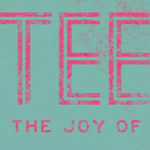WACO—If Western civilization is mired in decadence, it has less to do with orgies and overindulgence than with sterility and stagnation, conservative Catholic commentator Ross Douthat told a Baylor University crowd.
Douthat, author and New York Times columnist, participated in a public dialogue about “Decadent Societies” moderated by Alan Jacob, distinguished senior fellow at Baylor’s Institute for Studies of Religion.
Flagrant sin and moral depravity are symptomatic of decadence but do not define it, Douthat suggested. While some view a decadent society as one that has failed or faces imminent failure, he sees a society’s decadence and its failure as related but not identical.
“Decadence creates certain vulnerabilities to failure but is not synonymous with failure,” he said.
‘Drift, stagnation and repetition’
Instead, Douthat considers a decadent society as the opposite of a dynamic society. “Drift, stagnation and repetition”—as opposed to dynamism, creativity and originality—characterize a decadent society, he asserted.
The 150-year period from 1825 to 1975 represented a time of dynamic technological change that coincided with revolutionary change in morality, exploration and artistic expression, he observed.
While there is not necessarily a cause-and-effect relationship between economic, technological, moral and artistic dynamism, he believes “some suggestive correlation” exists.
“I don’t think it’s crazy to suggest that there are feedback loops” of creative energy, he said.
‘Simmering discontent’

A century and a half of dramatic technological advancement created an “expectation of change,” but “the promise that tomorrow will be better than today” failed to materialize significantly in the last four and a half decades, he asserted.
Sign up for our weekly edition and get all our headlines in your inbox on Thursdays
Consequently, Western society is burdened with “the costs of modernity”—including a lack of grounding in tradition—“without its promised benefits,” Douthat said.
“What you’re left with is a simmering discontent,” he said.
The post-World War II era of expansion, particularly the 1960s and early 1970s, marked the last great dynamic period in the United States, he said, pointing to the Apollo space program as its defining symbol.
While not all the “moral revolutions” that occurred in that time had positive outcomes, the creative energy of the era is undeniable, he noted.
‘The stability of the grave’
Dynamism carries an element of danger, whereas decadence offers stability, he asserted.
“It is a stability that is kind of sterile … like the stability of the grave,” he said.
The most pervasive technological advance since the mid-1970s—the Internet—seems to offer both “perpetual stimulation” and the “perpetual illusion of activity,” he suggested.
“It’s possible that the Internet is just play-acting” that leaves users “over-stimulated to the point of numbness,” he said.
On the other hand, it could set the stage for destabilizing change, he added. History will determine whether social media and the Internet generate real change and reflect reality or just offer a substitute for it, he noted.
‘Desire for something better’
For most of the last four and a half decades, Western society has appeared “stuck” in a sustainably decadent phase, endlessly repeating without resolving essentially the same arguments, Douthat observed.
“Even if people have a sense of moral imagination, if they become frustrated with the institutions, that moral imagination curdles,” he said.
Ironically, both Alexandria Ocasio-Cortez’s Green New Deal democratic socialism and Donald Trump’s “Make America Great Again” populism reflect a visceral reaction against decadence, Douthat asserted.
In different ways, both appeal to the idea that the United States “used to do big things” and reflect a desire to “get back to that,” he noted.
“As a conservative, I think there are deep moral problems with the left’s vision. As a Christian, I think there are deep moral problems with Donald Trump’s vision,” he said.
However, both reflect the “desire for something better,” he added.














We seek to connect God’s story and God’s people around the world. To learn more about God’s story, click here.
Send comments and feedback to Eric Black, our editor. For comments to be published, please specify “letter to the editor.” Maximum length for publication is 300 words.